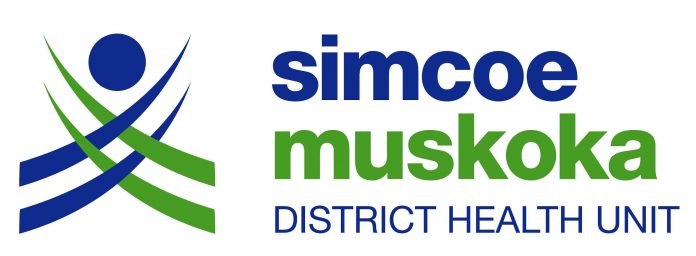Measles is the world’s most contagious human respiratory virus, much more so than COVID-19, as it is spread through the air indoors without needing to be close to someone who is infectious. It can quickly spread among people who are unvaccinated. Globally, the number of countries with measles cases have been increasing. In 2022, approximately 136,000 people, mostly children died of measles. There have also been a number of outbreaks occurring in Europe and the United States. Currently, there are four active cases of measles in Canada, two of which are in Ontario in the Region of Peel and City of Toronto.
Because of the COVID-19 pandemic, some children may have had some delays of their routine childhood immunizations including the measles, mumps and rubella (MMR) vaccine, which leaves them vulnerable to measles. The Simcoe Muskoka District Health Unit (SMDHU) is encouraging individuals and families to ensure they are up to date with their measles vaccine, particularly in advance of the upcoming school break in March and any international travel. The measles vaccine is highly effective and safe. Two doses of the measles vaccine is about 97 percent effective in preventing measles.
Ontario children receive the MMR vaccine at the age of one year and then a second dose between the age of four and six years as part of the province’s routine immunization schedule.
Due to the increased risk of exposure when travelling internationally and then bringing it back home, Ontario’s Chief Medical Officer of Health and the health unit recommend that people who are not up to date with their measles immunization receive a dose of the MMR vaccine including:
- Infants aged six to 11 months of age who will be travelling to areas with increased measles transmission.
- Children aged four to six years of age.
- Children who missed their second dose of MMR vaccine.
- Adults aged 18 years and older who have previously received one dose of MMR vaccine should receive a second dose if they are health care workers, post-secondary students, planning to travel to areas with increased measles transmission or based on the health care provider’s recommendation.
Individuals may receive the MMR vaccine from their health care provider or they can book an immunization appointment at any of the health unit’s offices in Collingwood, Cookstown, Gravenhurst, Huntsville, Midland and Orillia, or at the 80 Bradford St. clinic in Barrie.
Measles usually occurs in young children. However, anyone who is not fully immunized is at risk of becoming infected. The virus is spread when an infected individual coughs or sneezes and the virus can float in the air for up to two hours. Symptoms of measles begin seven to 21 days after exposure and include fever, runny nose, cough, drowsiness, irritability and red eyes. Small white spots appear on the inside of the mouth and throat but are not always present. Three to seven days after symptoms begin, a red, blotchy rash appears on the face and then progresses down the body. Possible complications include middle ear infections, pneumonia, diarrhea or encephalitis (swelling of the brain) and occasionally death in the very young.
For more information about measles and vaccination, please visit smdhu.org. To speak with a public health professional, call Health Connection at 705-721-7520 or 1-877-721-7520 Monday to Friday from 8:30 a.m. to 4:30 p.m.








